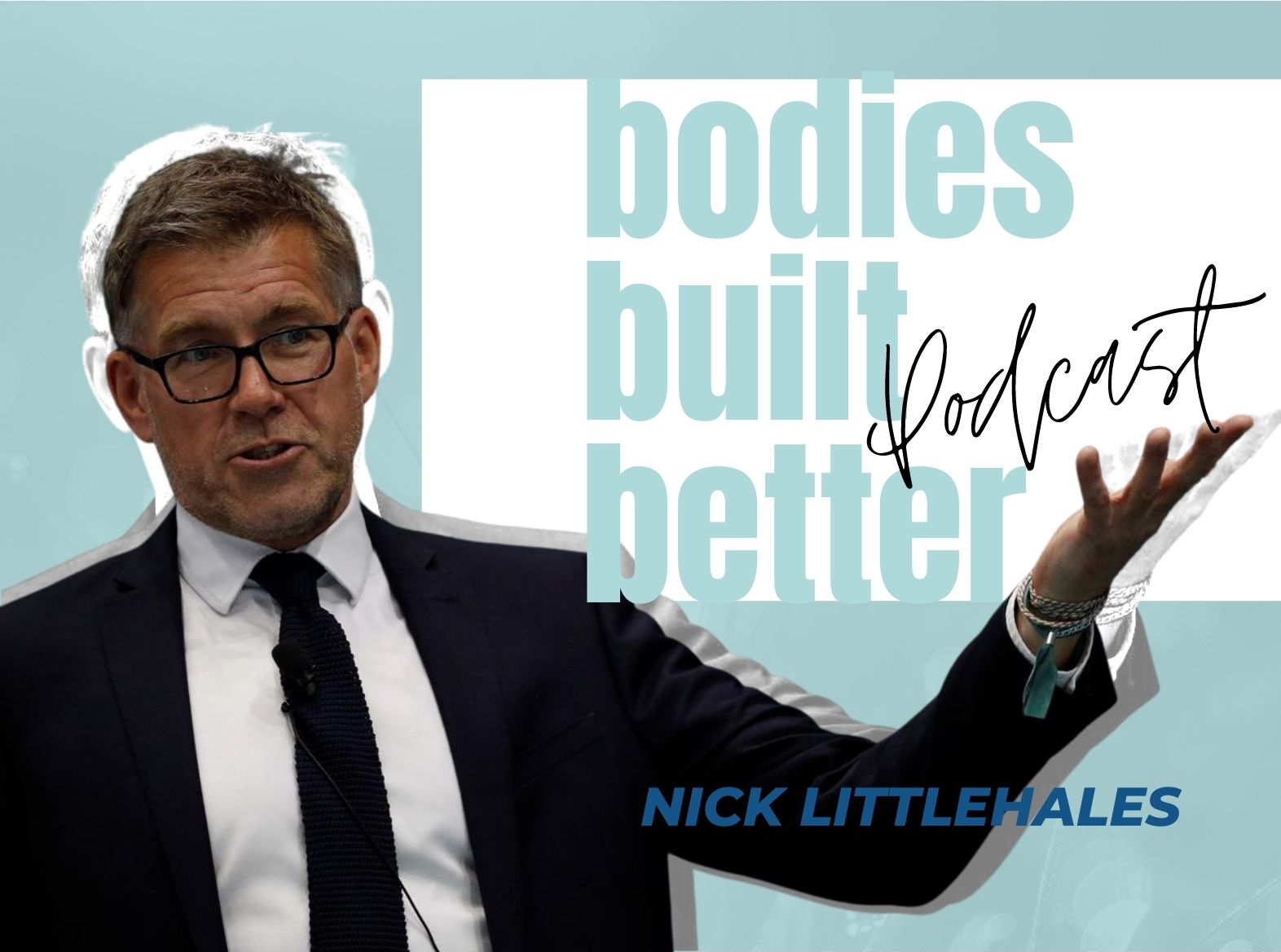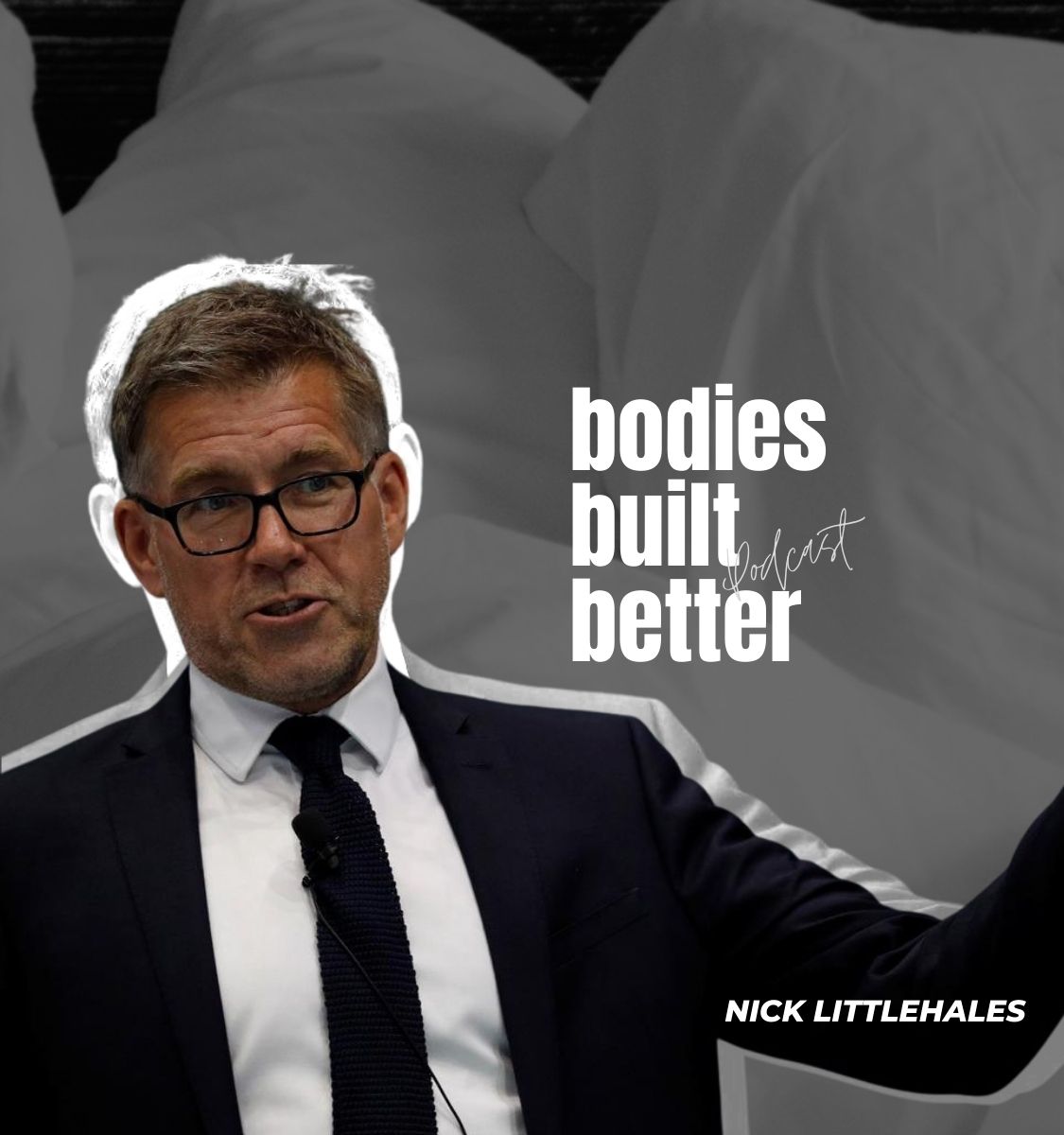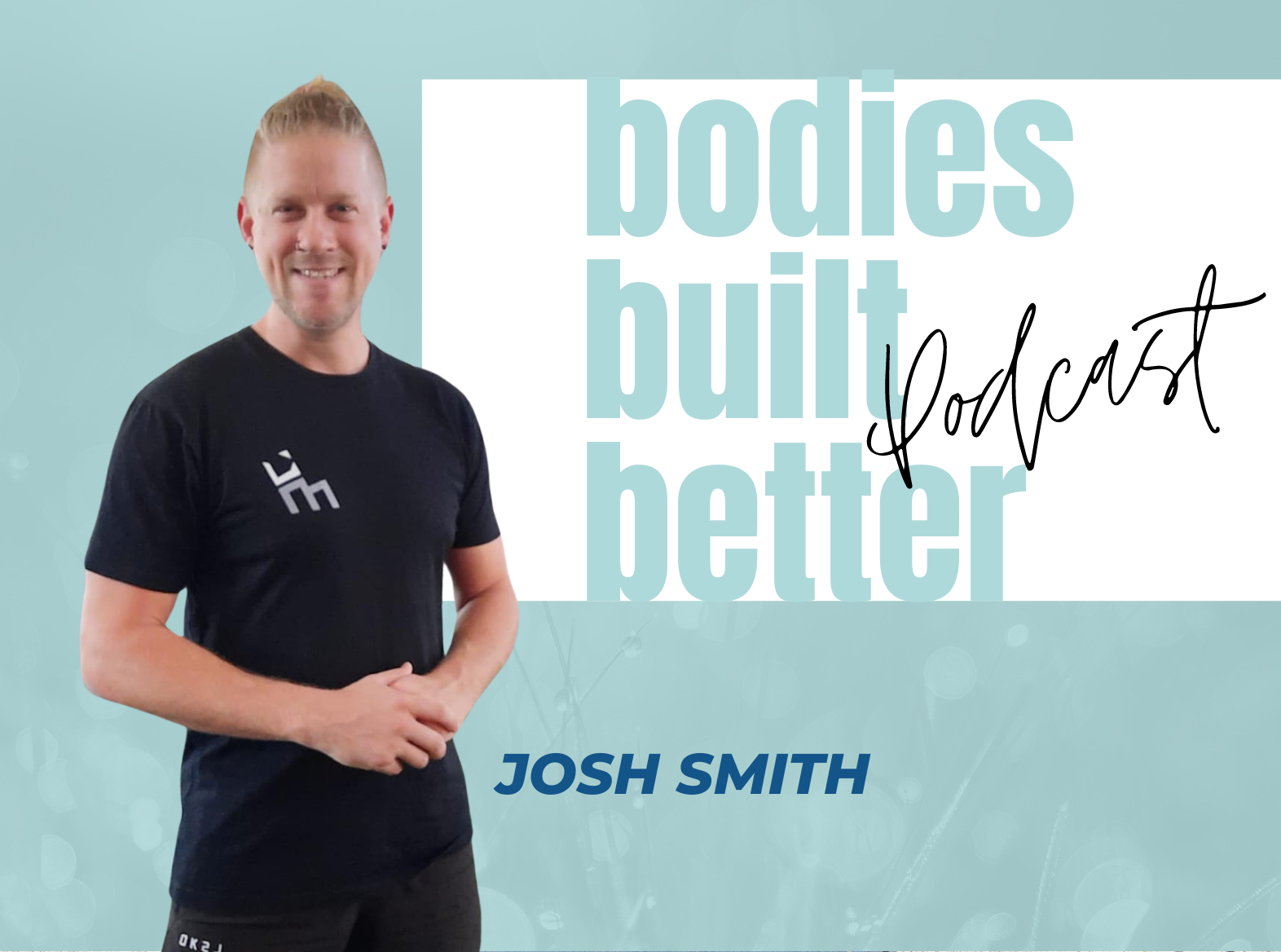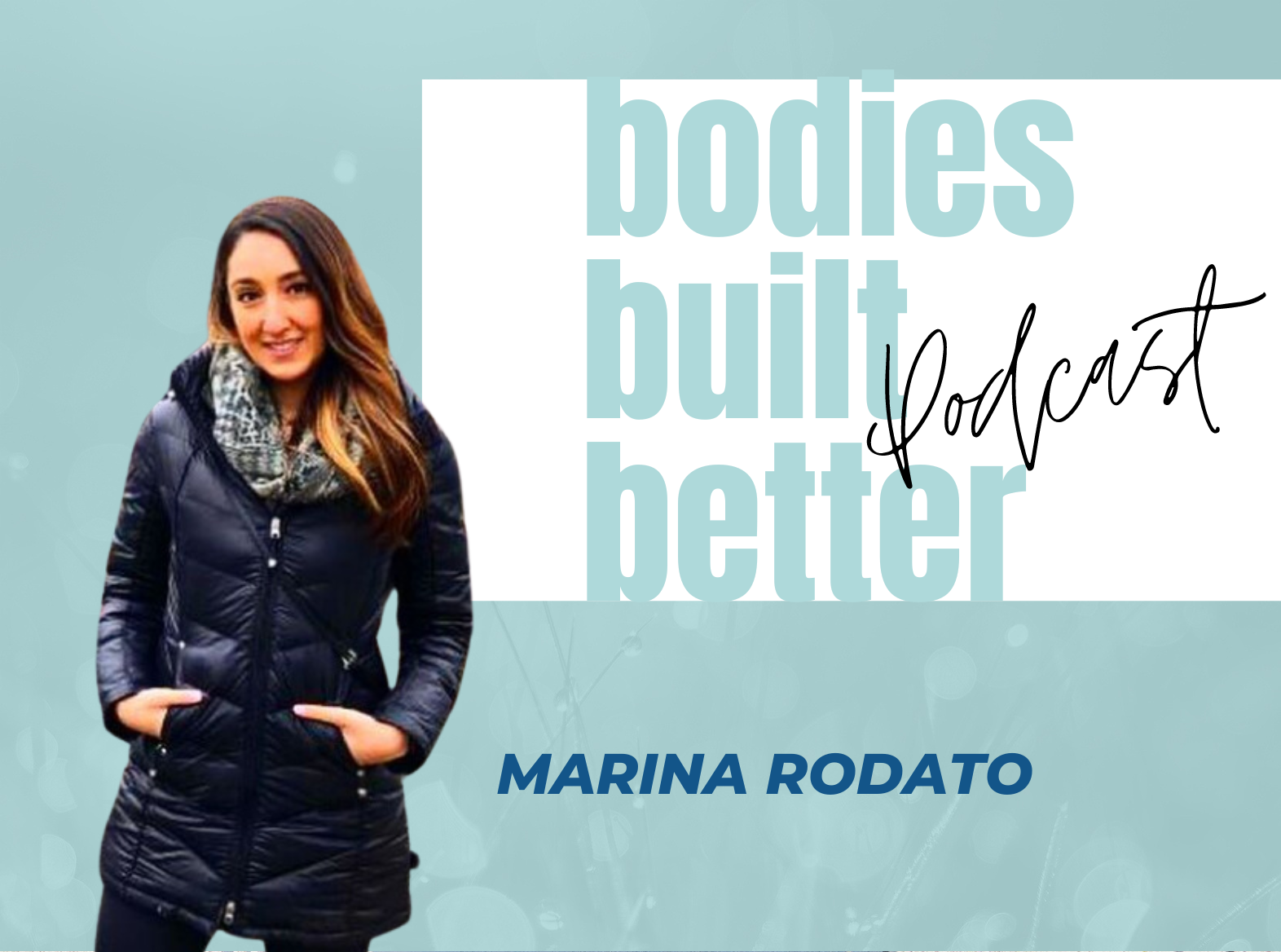Jackie 3:08
Nick, thank you so much for chatting with me today. I appreciate your time. We are talking about sleep, and more importantly, sleep for performance. And who better to talk to than the elite sports sleep coach. You’ve worked with the biggest teams in the world, which I’m super pumped to get a bit of an insight to a bit later on. But before we do, I’d love to know a bit about your journey and how you came to be the elite sports sleep coach.
Nick 3:38
Well… it’s a combination of a number of things. [I] very much love sport. You know, my teenage years and school years, really try to endeavour to get into some sort of professional sport. But that was way back, you know, late ’70s, early ’80s, and sport was very different. So it was a bit more of a challenge getting into sport unless you’re super talented. I started a family and fell into the sleep industry with a big company who made comfort products like mattresses and beds just to pay the bills and the mortgage. Didn’t really like it, but it was paying the bills. And it sent me on a little journey. The company that I was working for sort of asked me to do things in a certain way, which is pretty standard. But I found that that was difficult and complicated, and [I] found my own way to sort of try and do that same job. It became very successful. I ended up being their international sales and marketing director at quite a young age. That led me into a much bigger group globally. So I was wandering around in the sleep industry. We didn’t have a sort of council associated In the UK for sleep, so I collaborated with a couple of partners and set up a Sleep Council for the UK, a body to try and help get through all the myths and misunderstandings of sleep, on where to go for people. I was the chairman of that for a while. And it’s sort of, I got to a particular point where I couldn’t–actually I’ve never come across a definitive approach to sleep. You know, it was lots of, how important it is. But in general terms, wherever you look to humans on the planet, it’s sort of like, “Get your eight hours, don’t eat too late,” very general sort of stuff. And there were so many different occupations from parents to surgeons […] even back in the ’90s, where most people just ignored that information because they had to find their own way of doing things. So, [it was] very much taken for granted, not a performance criteria. It is a health pillar, but we certainly don’t focus on that health, like we know everything else. So I just decided to principally leave the industry, and set up on my own in another field. And it was just at that particular time, when I was working out my 12 months contract with the company, my UK office was in a place called Oldham in the northwest of Manchester. I happened to get asked, [there] was a local football team called Oldham Athletic, who knocked on my door asking for some money to sponsor their shirts. I made the decision to do it, because it seemed a good thing to do for all the workforce in the factory, who are all local football team supporters. And because I was writing the checkout, I got invited along to a few football events with Oldham Athletic. And so I then became aware that […] one of the clubs was a breeding ground locally for players for Manchester United, which was the club down the road. And that meant I bumped into a few people, including Alex Ferguson. And obviously, we’ve got a mattress company name on the front of a football shirt with them, {it] was a bit strange. So of course, it does generate conversation. You know, “Hi, Nick. I’m Alex. What on earth do you do? Why are you doing all that?” It was just very light hearted. I mean, he was a very sort of driven and open minded person back then. Had a very young team of players called the class of ’92, they’ve really started to make a little bit of an impact on World Football. And I just happened to mention a few things that from my point of view were certain things that possibly, you know, everybody should be looking at. [So I] ended up going into the club, ended up talking to the lead physio at the time, and ended up doing one or two little things. So we started to sort of mention one or two things that might be useful. And one or two things just fell into place, they started out in focus and wanted to, for the first time, do double up preseason training. So they train[ed] in the morning and the afternoon, which had never been done before. So it created more data collecting at different points of the day, it started to allow me to have conversations about chronotypes, and sleeping in cycles, and circadian rhythms, and all this sort of stuff […] And he was just, “Love it, you know, if we don’t know anything about this, why aren’t we doing something about it?” So there were one or two people at the time who were, I think it was any other club, any other part of the world, that conversation would never have developed at all. Because, you know, back then, we didn’t even have a farm. There was [none of] this sort of world that we’re in now, two decades later, it is just you wouldn’t have even imagined it, what the world that you live in to the world that was there back in the ’90s. So I was just doing this stuff. Not real. It was, I was just doing it because [I] got nothing better to do. And my company was not really interested in sports or anything like that. They made mattresses and pillows and beds, you know, international. So they basically just left me, left me to go and wander around Manchester Early Football Club and to cut the story as short as I can, most of the players played for the England National Team. So they started telling the England National Team that they’ve got this guy coming and talking to him about sleep and stuff. That triggered off a contact with the lead physio at Arsenal Football Club, who was shared between the two. He got in touch with me and sort of said, “What are you doing?” He just [got] a new breed of manager called Arsene Wenger. A French manager […] And he [had] pretty much extreme views about how you go about creating these athletes. So it was that combination […] So that became the first time when I was actually asked to stand in front of a group of first team players, multicultural, from all parts of the world, and try to talk to them about sleep. So it’s sort of default, shortly afterwards, the word gets out. And the media simply wrote that, “you know, Manchester United, or Arsenal, got a sleep coach.” And I thought, “Well, that’s me, isn’t it?” So it goes, “Well, what is this sleep coach? I’ve never met one before. I can’t even Google one. Sleep, gotcha.”
Jackie 11:35
You’re defining it.
Nick 11:37
Make it up. And then, it’s just been a journey from there to Euro Championships to British Cycling Team Sky, to the front podiums, Premiership football clubs, NBA, NFL in the US, all sorts of sports from netball, to rowing to snowboarding, so it’s right across the piece. And it was around London (Olympics) 2012, when some of the work I was doing, particularly with British Cycling, just raised the question of “Why is British Cycling able to keep breaking world records?” and there’s a little bit of “Well, they must be doing bad things.” But the one thing within their whole system that they’d never looked at before, was their approach to sleep. So it was the conversation piece, because you can talk about bikes and helmets and stuff. So it became a conversation piece. And I think from 2012, to where we are today–nevermind the last few years of the crazy pandemic process–I think what’s happened is, it just became that there was no (sleep) education in school, so parents don’t pass it on to kids. It’s not a performance criteria, you just get up and get on with your day. There’s no sort of definitive way of doing it. Even people who sleep really well can’t tell you how they do it. So I think we were getting away with it, Jackie. We were kind of getting away with it. And as we’ve shifted, and keep shifting, and keep shifting our behaviour, and technology and all that sort of stuff. Suddenly, we reach a point where the human being with a brain and bodily functions, really starts to find that a little more complicated than ever before. So it’s a combination now of performance, to reach the highest levels when you want to reach them, consistent, sustainable recovery, both mentally and physically. But there’s also an element of presenting yourself. Because if you haven’t got a practical and achievable way of revealing, optimising your recovery, in a rolling 24-7 process, what happens is you start to hit barriers. And wherever you are, we’ve got so much access at the end of our fingertips now, which we can access without medical supervision. So there’s lots of stimulants, there’s lots of supplements, there’s lots of technology, there’s lots of things like sleeping tablets you can access without going to the GP or doctor and lots of caffeine products that give you real highs and lows, so I think it’s just we’ve got into that particular place where, yes, it’s sleep, but you kind of want to get rid of the perception of what that means. Because you say “sleep” to somebody and they just go, “Oh, you mean that something that I do at the end of the day?”
Jackie 14:57
Exactly, yeah.
Nick 14:59
So whilst I do have an impact on quite a lot of influential organisations around the world, it’s still only scratching the surface. I think we’re on a bit of a journey to try and make this the first health pillar, because we’ve certainly experienced that. If you’re not recovered, you can still crack on with your exercise routines, your diets, all of that sort of stuff that you might apply every day. But all of those things are going to be diminished, if you’re doing it in a sort of fatigued mindset. So what we’ve started to do now is shift to human recovery performance, to try and create the emphasis that this is really important to be able for you to be successful. And it’s not just that random thing that the past generations took for granted.
Where to Find Nick:
Website: https://sportsleepcoach.com/
Instagram: @_sportsleepcoach
You Tube: Tips for better sleep


